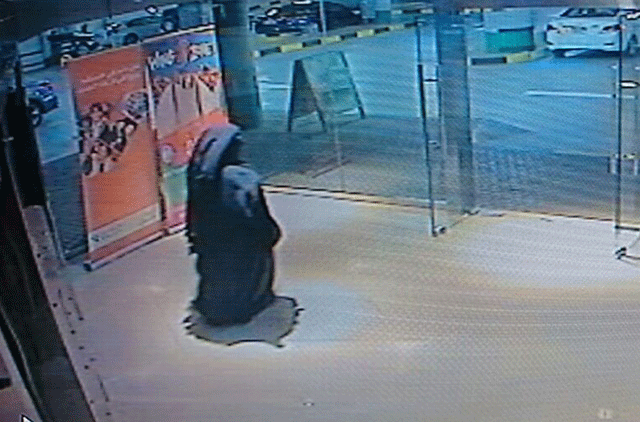
Abu Dhabi: The first court session in the case of Reem Island murder suspect Ala’a B.H., 29, has been adjourned until April 6 for the defence team to review the suspect’s case files.
The case of Ala’a, who is accused of stabbing an American teacher to death at Reem Island’s Boutik Mall and then planting a bomb outside the home of another US citizen, is being tried at the State Security Court of the Federal Supreme Court
The incidents took place on December 1, 2014, Police apprehended the suspect less than 48 hours later.
Ala’a was not wearing a niqab (face covering) during the trial and introduced herself as a 29 year-old unemployed woman when questioned by presiding judge Falah Al Hajeri.
Video showed the suspected murderer had been wearing the national dress, including a niqab and shayla (veil), when security cameras at the Boutik Mall caught her entering and leaving the women’s washroom where she is believed to have murdered 47-year-old kindergarten teacher and mother of three, Ibolya Ryan, with a large kitchen knife.
Ala’a’s lawyer, Abdul Qader Al Haithami, requested that the court allow him and the defendant’s family members to visit her in prison. The judge granted this permission but insisted that she remain in jail. The defendant’s brother and father attended the hearing and left as soon as the postponement was announced. They were escorted out of the courtroom by security guards.
The defendant was arrested at her Abu Dhabi home and the process was filmed by Security Media team members in a video that became widespread after she was apprehended.
Second case
The Supreme Court also saw a second case involving an Arab national who is accused of importing prohibited military devices from foreign officials. The accused is charged with importing the devices that have both civil and military uses and then exporting them, which harms the country’s security and reputation, the court said. During the trial, two witnesses were heard — the firstis an employee at the Ministry of Interior’s bureau for monitoring, imported and exported items and the second a security official from the State Security Court.
Their testimonies revealed that the defendant had opened an electronic shop in 2012 in the capital and he imported equipment from the US and China before exporting this to military organisations in Syria.
The witnesses also confirmed that they had once apprehended the defendant and warned him against this behaviour, making him sign an undertaking which he violated by repeating the violations by importing similar items from China.
The next session of his trial has been postponed to April 13 to hear State Security Prosecution arguments and to allow the defendant’s team to prepare their statements.












